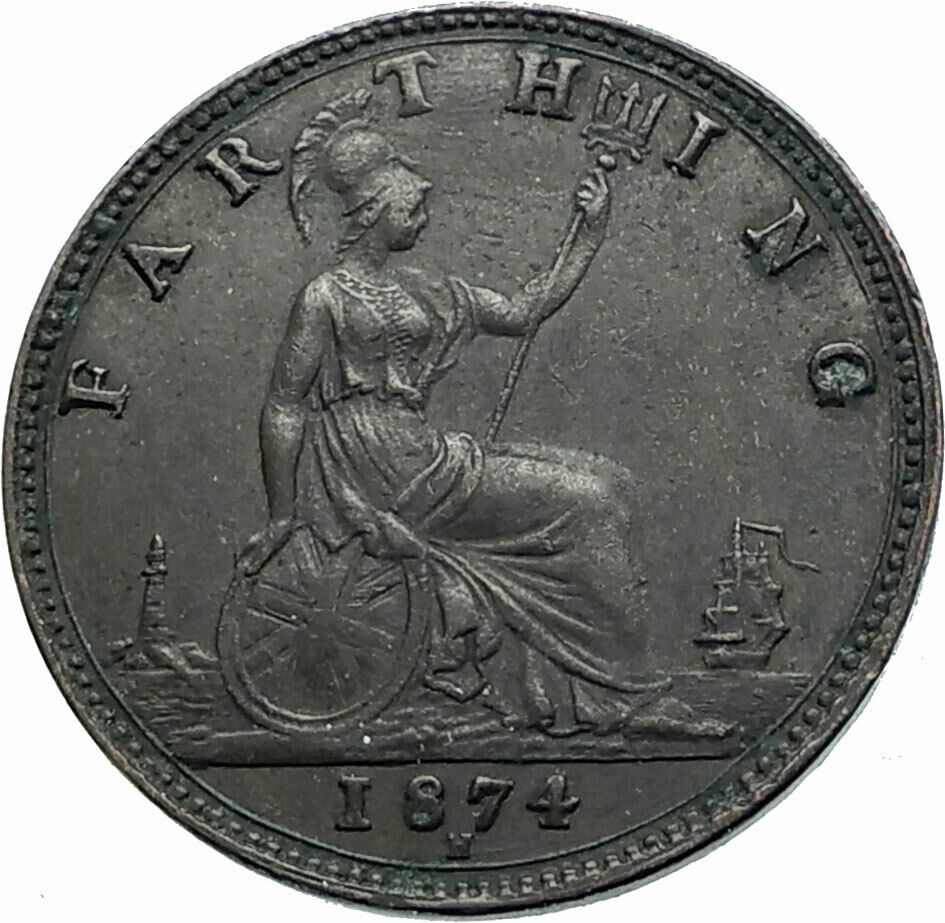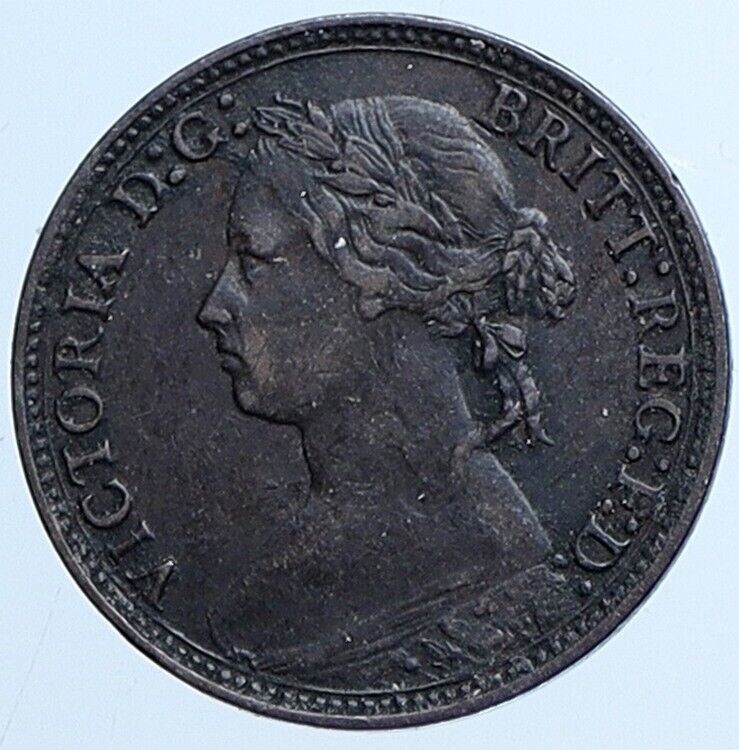|
Ireland under George II – King: 11/22 June 1727 – 25 October 1760
1744 Copper Farthing (1/4 Penny) 22mm (3.90 grams)
Reference: KM# 131 (1744)
GEORGIUS • II • REX • , George facing right.
HIBERNIA·, Crowned Cláirseach (or Gaelic harp).
You are bidding on the exact item pictured, provided with a Certificate of Authenticity and Lifetime Guarantee of Authenticity.
 George II (George Augustus; German: Georg August; 30 October / 9 November 1683 – 25 October 1760) was King of Great Britain and Ireland, Duke of Brunswick-Lüneburg (Hanover) and a prince-elector of the Holy Roman Empire from 11 June 1727 (O.S.) until his death in 1760. George II (George Augustus; German: Georg August; 30 October / 9 November 1683 – 25 October 1760) was King of Great Britain and Ireland, Duke of Brunswick-Lüneburg (Hanover) and a prince-elector of the Holy Roman Empire from 11 June 1727 (O.S.) until his death in 1760.
Born and brought up in northern Germany, George is the most recent British monarch born outside Great Britain. The Act of Settlement 1701 and the Acts of Union 1707 positioned his grandmother, Sophia of Hanover, and her Protestant descendants to inherit the British throne. After the deaths of Sophia and Anne, Queen of Great Britain, in 1714, his father, the Elector of Hanover, became George I of Great Britain. In the first years of his father’s reign as king, George was associated with opposition politicians until they rejoined the governing party in 1720.
As king from 1727, George exercised little control over British domestic policy, which was largely controlled by the Parliament of Great Britain. As elector, he spent twelve summers in Hanover, where he had more direct control over government policy. He had a difficult relationship with his eldest son, Frederick, who supported the parliamentary opposition. During the War of the Austrian Succession, George participated at the Battle of Dettingen in 1743, and thus became the last British monarch to lead an army in battle. In 1745 supporters of the Catholic claimant to the British throne, James Francis Edward Stuart (“The Old Pretender”), led by James’s son Charles Edward Stuart (“The Young Pretender” or “Bonnie Prince Charlie”), attempted and failed to depose George in the last of the Jacobite rebellions. Frederick died suddenly in 1751, nine years before his father, so George II was ultimately succeeded by his grandson, George III.
For two centuries after George II’s death, history tended to view him with disdain, concentrating on his mistresses, short temper, and boorishness. Since then, reassessment of his legacy has led scholars to conclude that he exercised more influence in foreign policy and military appointments than previously thought.
.jpg/260px-Ireland_(MODIS).jpg) Ireland is an island in the North Atlantic. It is separated from Great Britain to its east by the North Channel, the Irish Sea, and St George’s Channel. Ireland is the second-largest island of the British Isles, the third-largest in Europe, and the twentieth-largest on Earth. Ireland is an island in the North Atlantic. It is separated from Great Britain to its east by the North Channel, the Irish Sea, and St George’s Channel. Ireland is the second-largest island of the British Isles, the third-largest in Europe, and the twentieth-largest on Earth.
Politically, Ireland is divided between the Republic of Ireland (officially named Ireland), which covers five-sixths of the island, and Northern Ireland, which is part of the United Kingdom. In 2011, the population of Ireland was about 6.6 million, ranking it the second-most populous island in Europe after Great Britain. Just under 4.8 million live in the Republic of Ireland and just over 1.8 million live in Northern Ireland.
The island’s geography comprises relatively low-lying mountains surrounding a central plain, with several navigable rivers extending inland. Its lush vegetation is a product of its mild but changeable climate which is free of extremes in temperature. It was covered by thick woodlands until the Middle Ages. As of 2013, the amount of land that is wooded in Ireland is about 11% of the total, compared with a European average of 35%. There are twenty-six extant mammal species native to Ireland. The Irish climate is influenced by the Atlantic Ocean and thus very moderate, and winters are milder than expected for such a northerly area, although summers are cooler than those in Continental Europe. Rainfall and cloud cover are abundant.
The earliest evidence of human presence in Ireland is dated at 10,500 BC (12,500 years ago). Gaelic Ireland had emerged by the 1st century AD. The island was Christianised from the 5th century onward. Following the 12th century Norman invasion, England claimed sovereignty. However, English rule did not extend over the whole island until the 16th-17th century Tudor conquest, which led to colonisation by settlers from Britain. In the 1690s, a system of Protestant English rule was designed to materially disadvantage the Catholic majority and Protestant dissenters, and was extended during the 18th century. With the Acts of Union in 1801, Ireland became a part of the United Kingdom. A war of independence in the early 20th century was followed by the partition of the island, creating the Irish Free State, which became increasingly sovereign over the following decades, and Northern Ireland, which remained a part of the United Kingdom. Northern Ireland saw much civil unrest from the late 1960s until the 1990s. This subsided following a political agreement in 1998. In 1973 the Republic of Ireland joined the European Economic Community while the United Kingdom, and Northern Ireland, as part of it, did the same.
Irish culture has had a significant influence on other cultures, especially in the fields of literature. Alongside mainstream Western culture, a strong indigenous culture exists, as expressed through Gaelic games, Irish music and the Irish language. The island’s culture shares many features with that of Great Britain, including the English language, and sports such as association football, rugby, horse racing, and golf.
|





 George II (George Augustus; German: Georg August; 30 October / 9 November 1683 – 25 October 1760) was King of Great Britain and Ireland, Duke of Brunswick-Lüneburg (Hanover) and a prince-elector of the Holy Roman Empire from 11 June 1727 (O.S.) until his death in 1760.
George II (George Augustus; German: Georg August; 30 October / 9 November 1683 – 25 October 1760) was King of Great Britain and Ireland, Duke of Brunswick-Lüneburg (Hanover) and a prince-elector of the Holy Roman Empire from 11 June 1727 (O.S.) until his death in 1760..jpg/260px-Ireland_(MODIS).jpg) Ireland is an island in the North Atlantic. It is separated from Great Britain to its east by the North Channel, the Irish Sea, and St George’s Channel. Ireland is the second-largest island of the British Isles, the third-largest in Europe, and the twentieth-largest on Earth.
Ireland is an island in the North Atlantic. It is separated from Great Britain to its east by the North Channel, the Irish Sea, and St George’s Channel. Ireland is the second-largest island of the British Isles, the third-largest in Europe, and the twentieth-largest on Earth. 




